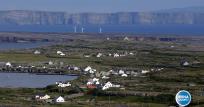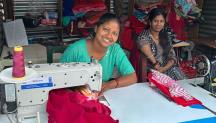

Building Knowledge of the Energy Transition in Remote Communities
Newsletter
Numerous communities across the world reside in isolated areas that are too distant or challenging to connect to traditional energy grids. It is estimated that around 733 million people worldwide do not have access to electricity. Many of these isolated communities rely on fossil fuels for heat and power, polluting the air and emitting greenhouse gases into the environment.
With the goal of improving knowledge and understanding of clean energy resources in remote off-grid communities through a global initiative, IRENA, and the Natural Resources Canada (NRCan) launched the "Global Initiative for Transitioning Remote Communities to Renewable Energy" at COP26 in 2021.
To raise the momentum behind this exceptional initiative, on 12 November, IRENA and NRCan organised a side event titled “Transitioning Remote Communities to Renewable Energy” at COP27 in the IRENA pavilion. The joint event highlighted the ongoing work under the initiative.
“Decentralised renewables, including micro and mini-grids, are essential components of a sustainable energy system in remote communities and are central to reducing fossil fuels dependency,” said IRENA Deputy Director General Gauri Singh.
Calling upon partners and stakeholders to join hands under the Global Initiative, Ms. Singh said providing clean, reliable, and sustainable energy to uplift the socioeconomic well-being of remote communities is paramount to achieving the goals of SDG7 by 2030. “Through involved community ownership, suitable financing access and public-private partnerships, decentralised renewable energy projects can be sustained and scaled, over time.”
The panel discussions laid the groundwork for extending the work on knowledge products for transitioning remote communities and supporting them on-the-ground through project facilitation. The panel, comprising of representatives from government, indigenous communities, development partner, private sector, and NGO, exchanged knowledge and best practices in providing access to remote communities through renewable energy, and the challenges needing to be addressed. The session also discussed investment needs and delivery models for the renewable energy deployment across these communities.




